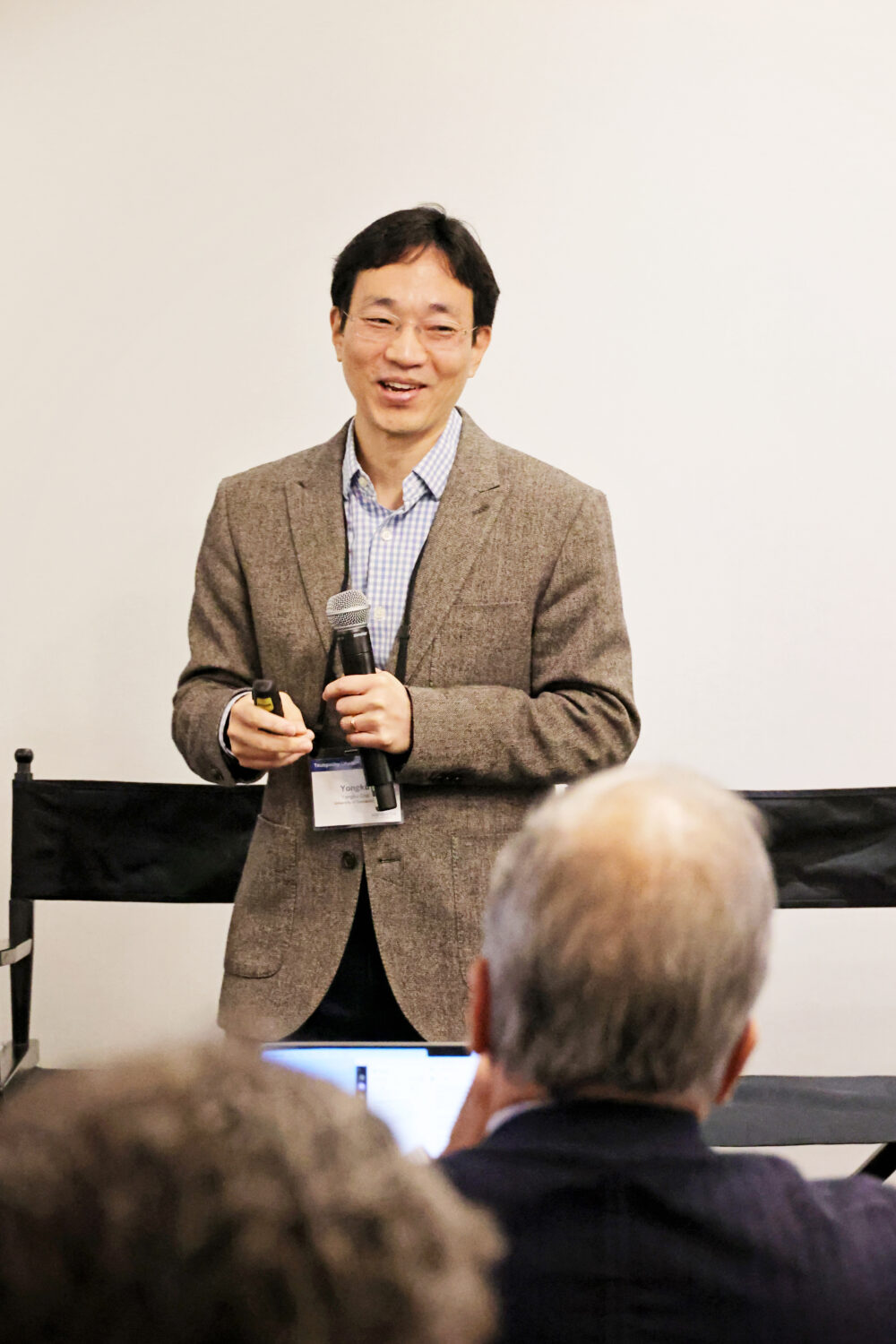In part I of our recap of the inaugural Tauopathy Challenge Workshop, we described the impetus for and structure of the workshop. We also introduced the first of the four recipient programs that were selected for funding. Part II of our recap focuses on the three other projects that were selected for funding.
Program Deep Dive:
Yongku Cho, PhD, Univ. of Connecticut Department of Chemical and Biomolecular Engineering, and Jesse Rinehart, PhD, Yale University Department of Cellular and Molecular Physiology, “Decoding tau post-translational modifications in PSP and FTDs.”

Tau proteins are linked to several neurodegenerative diseases, including Alzheimer’s disease, frontotemporal dementia (FTD), and progressive supranuclear palsy (PSP). Scientists have observed that the conformation of tau protein clumps differs between these diseases. While the cause of these differences is unknown, researchers believe that changes to the protein itself, like adding phosphates or acetyls, might play a role. These changes are called post translational modifications (PTMs). PTMs are necessary for the healthy function of most proteins. However, when the physiological balance of PTMs is perturbed, they are believed to instigate aggregation and toxicity in the brain.
This project tackles the question of how some PTMs may cause toxic tangles of tau in tauopathies. Yongku Cho and Jesse Rinehart plan to create new tools to study tau with these PTMs. Current methods to study this topic use shortened versions of tau protein, but this project will use the full-length version, making the research more relevant to real-world diseases. They will then see how these modifications affect the protein’s behavior, such as clumping and toxicity. Additionally, the project will validate new antibodies to better distinguish between different tau clump types based on the disease. The ultimate goal is to develop tools that researchers can use to gain a deeper understanding of these diseases and potentially improve diagnosis and treatment.
Program Deep Dive:
Kathryn R. Bowles, PhD, Univ. of Edinburgh Center for Discovery Brain Sciences, “Understanding the role of astrocytic tau accumulation on glial and neuronal health in PSP.”

PSP is a brain disorder marked by clumps of a protein called tau in star-shaped cells (astrocytes). Unlike Alzheimer’s disease, where tau accumulates in neurons, PSP is characterized by a small amount of tau accumulation in neurons. In her earlier research , Kathryn Bowles compared healthy brains and PSP brains. She found that astrocytes in PSP have different genes turned on compared to those in healthy brains, suggesting that these cells play a key role in the disease. She observed that the tau in astrocytes comes from damaged neurons, not from the astrocytes themselves. Dr. Bowles and her team then studied lab-grown astrocytes with mutations linked to PSP. They found that these astrocytes take up tau protein faster than healthy astrocytes. Additionally, these mutant astrocytes showed signs of inflammation, which might further increase tau uptake.
The current research focuses on how tau gets into astrocytes in PSP and its impact on nearby neurons by addressing three questions. First, Dr. Bowles will examine how different forms of tau and inflammation influence how quickly astrocytes accumulate tau, particularly those with mutations linked to PSP. Second, the team will study how tau buildup changes the genes turned on in astrocytes and how well they can clear waste products, potentially contributing to disease progression. Finally, they will try to understand whether tau in astrocytes harms neurons. Neurons and astrocytes will be grown together to see if tau accumulation in astrocytes makes neurons more susceptible to damage. Answering these questions should yield a better understanding of how tau accumulates in astrocytes and contributes to the progression of PSP, and ultimately could lead to new therapies for PSP.
Program Deep Dive:
Rik van der Kant, PhD, Amsterdam UMC Department of Neurology, “Understanding, and targeting, lipid dyshomeostasis in Tauopathies”

It is well known that abnormal protein clumps of tau are a hallmark of PSP, FTD, and other tauopathies. The researchers from the lab of Rik van der Kant are focusing on a surprising link between tau buildup and cholesterol levels and. Previous studies showed that high cholesterol in neurons can lead to tau accumulation. Moreover, mutations in the MAPT gene for tau can also affect how neurons process cholesterol, although the mechanism behind that connection has not been well studied. Dr. van der Kant and his team posit that tau mutations might cause a domino effect involving deregulating normal lipid metabolism which leads to pathologic outcomes. It begins with tau mutations causing stress on the mitochondria. The stressed neurons then produce too much cholesterol, which leads to more tau buildup in neurons. The neurons release extra cholesterol to nearby glial cells (astrocytes and microglia) provoking inflammatory processes that might be harmful to neurons.
By understanding the potential link between cholesterol, tau, and glial cell inflammation, the research team aims to identify new treatments for PSP and FTD. This will be facilitated by using cultured cells with tau mutations to map out how tau mutations affect cholesterol levels, inflammation, and tau buildup. The team will then search for compounds that can normalize cholesterol levels and inflammation in early proof-of-concept experiments. We are so proud of the first four grant winners from the Tauopathy Challenge Workshop. We look forward to collaborating with our partner organizations to host the second Tauopathy Challenge Workshop in January 2025.
To discover more about our next Tauopathy Challenge Workshop in 2025, please visit our webpage.

